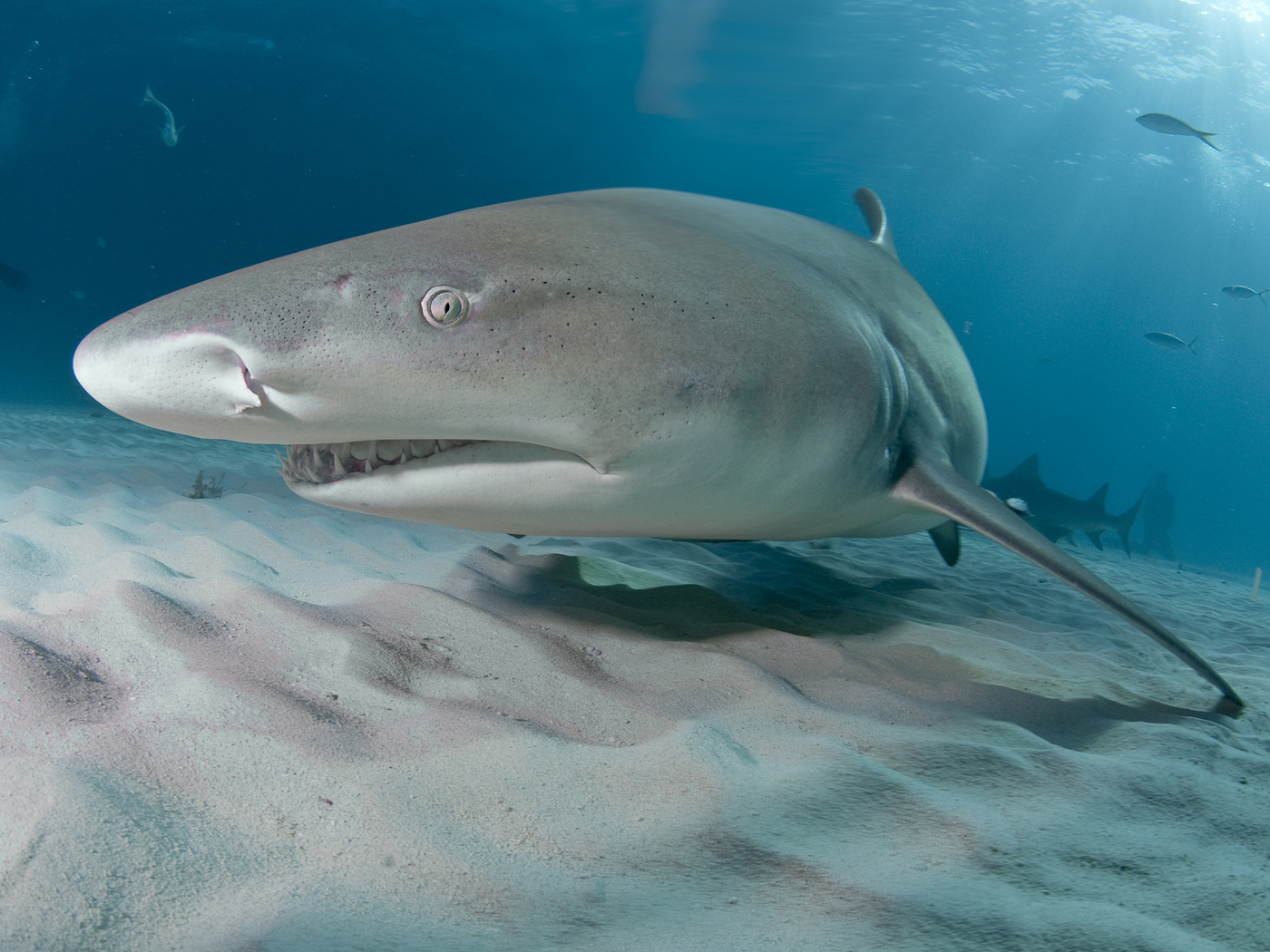A fascinating new book1 has recently been published in England with the intriguing title, The Darwin Wars. The author, Andrew Brown, though himself an atheistic evolutionist, in 1995 won the Templeton Prize as the best religious affairs correspondent in Europe.
The title of his book does not refer to the long warfare between evolutionists and creationists, as one might first suppose, but rather to the internecine battles between various groups of evolutionists against each other. Although they close ranks when doing battle with creationists, they wrangle bitterly among themselves.
The most publicized battle at present is between the neo-Darwinians and the punctuationists. Richard Dawkins (of Cambridge University in England) is the best-known protagonist for the neo-Darwinists and Stephen Jay Gould of Harvard University for the punctuationists.
These two parties need names, and I propose to call them Gouldians and Dawkinsians.2
Like the gingham dog and the calico cat, these two groups seem bent on eating each other up. The Gouldians argue vigorously that the fossil record proves that evolution did not occur slowly and gradually and progressively, as neo-Darwinianism requires. The Dawkinsians, on the other hand, insist vehemently that there is no possibility genetically that sudden evolution after long periods of "stasis" (i.e., no change) could ever happen at all, as the punctuationists allege. Both are right!
One prominent Gouldian makes the following flat assertion that paleontology proves stasis, followed by wide extinction events, followed by rapid evolution of new kinds.
I make the very strong claim that nothing much happens in biological evolutionary history until extinction claims what has come before.3
This scenario then postulates that rapid evolution suddenly generates a new complex of flora and fauna to fill the vacant ecological niches.
But there is no biological mechanism that can do such marvelous things. Dawkins had correctly pointed out the following fact:
Complexity cannot spring up in a single stroke of chance. . . . Gradualness is of the essence. . . . If you throw out gradualness, you throw out the very thing that makes evolution more plausible than creation.4
And so Gouldians and Dawkinsians are actually (although unintentionally) helping to prove creationism, one disproving gradualism, the other disproving punctuationism. The house of evolution is badly, and eventually fatally, divided.
Niles Eldredge, the partner of Gould in their notion of stasis and punctuated equilibrium, has acknowledged this internal warfare.
Geneticists and paleontologists are still very much at each other's throats.5
Since evolution and creation are really worldviews, these battles among biologists also involve sociological and psychological controversies. Modern sociobiology, for example, tends to correlate with neo-Darwinism and social Darwinism while Marxist movements with their penchant for revolution, tend to favor punctuationism. Edward O. Wilson, a colleague of Gould's at Harvard, is considered the world leader in sociobiology (the application of animal behaviors to human societies). His followers and those of Gould have been involved in serious clashes.
One of these took place in the hallowed halls of Harvard University itself, involving a group of Gouldians in a Marxist club euphemistically named "Science for the People."
The supporters of Science for the People were quite happy to intimidate their opponents. In the worst incident, a group of black student protestors mounted the platform at a scientific meeting where Gould and Wilson were debating and drenched Wilson (who had a broken leg at the time) with water. . . . They then chanted, "Wilson, you're wet!" for a while.6
Remember that both Edward Wilson (along with most of his sociobiologist disciples) and Stephen Gould (with most other advocates of punctuated equilibrium) are doctrinaire atheists and anti-creationists. Although they can be bitter antagonists within evolutionism, they are of one mind in opposition to God and creation.
A notorious comment by John Maynard Smith pointed this fact out beautifully. Smith is an eminent British neo-Darwinist, who was a mentor of Richard Dawkins. With respect to Gould, he had the following to say:
Because of the excellence of his essays, he has come to be seen by non-geologists as the preeminent evolutionary theorist. In contrast, the evolutionary biologists with whom I have discussed his work tend to see him as a man whose ideas are so confused as to be hardly worth bothering with, but as one who should not be publicly criticized because he is at least on our side against the creationists.7
Another notorious debate involving Gould was with Steven Pinker, an evolutionary linguist and sociobiologist at M.I.T. Science writer Martin Brookes gives us the background.
The dispute over evolutionary psychology is just the latest incarnation of the nature/nurture debate . . . Pinker has joined the high-profile team of Dawkins and Daniel Dennett. . . . Gould stands on the opposite side of the ideological fence. . . .8
The comments of Brookes about the debate itself are fascinating.
For an argument about science, you would be hard pressed to find an exchange of views so full of hollow rhetoric, pompous quotations and insults. . . . The spat between Pinker and Gould . . . has no apparent function other than intellectual one-upmanship. It is precisely because there is so little evidence for either of their views that they can get away with so much speculation and disagreement.9
Brookes seems to agree with us creationists (though he would probably be appalled at such a suggestion!) that there is "so little evidence" for either neo-Darwinism or punctuationism, that both have to rely on "hollow rhetoric, pompous quotations and insults" to defend their beliefs.
Another combatant in the internal wars among evolutionary biologists is the growing body of evolutionary pantheists, who admit there is much evidence of intelligent design in living things, but then maintain that this is the result of Gaia, or cosmic consciousness, or Mother Nature, or anything other than a personal Creator. One of the most articulate leaders of this group is Lynn Margulis, who is especially critical of such neo-Darwinists as Richard Dawkins, John Maynard-Smith, and others of like faith.
Neo-Darwinian language and conceptual structure itself ensures scientific failure. Major questions posed by zoologists cannot be answered from within the neo-Darwinist straitjacket.10
Then quoting Gabriel Dover, she agrees that:
The study of evolution should be removed from teleological computer simulations, thought experiments and wrong-headed juggling of probabilities . . . the neo-Darwinist synthesis should not be defended to death by blind watchmakers.11
The last phrase is a reference to Richard Dawkins famous book, The Blind Watchmaker.
If space permitted, these internal squabbles among biologists could be elaborated at great length. Similar bitter in-house arguments are common among evolutionary geologists and evolutionary astronomers. But they all stand united against creationism! Otherwise they would have to believe in God and a future judgment, and this they are all unwilling to face.
We who do believe in God, creation, judgment, and redemption by Christ, can at least remind them of the words of our Lord Jesus Christ: "If a kingdom be divided against itself, that kingdom cannot stand. And if a house be divided against itself, that house cannot stand" (Mark 3:24,25). Some day, the House of Evolution will fall, "and great (shall be) the fall of it" (Matthew 7:27).
References
1 Andrew Brown, The Darwin Wars: How Stupid Genes Became Selfish Gods (London: Simon and Schuster, 1999), 241 pp.
2 Ibid., p. 56.
3 Niles Eldredge, The Patterns of Evolution (New York: W. H. Freeman and Co., 1998), p. 4.
4 Richard Dawkins, "What Was All the Fuss About?" Nature (vol. 316, August 22, 1985), p. 683.
5 Niles Eldredge, op. cit., p. 10.
6 Andrew Brown, op. cit., p. 71.
7 John Maynard Smith, in a review of Darwin's Dangerous Idea, by Daniel Dennett published in New York Times Review of Books, as cited by Andrew Brown, op. cit., p. 60.
8 Martin Brookes, "May the Best Man Win," New Scientist (volume 158, April 11, 1998), p. 51.
9 Ibid.
10 Lynn Margulis and Dorion Sagan, Slanted Truths: Essays on Gaia: Symbiosis and Evolution (New York: Springer. Verlag, 1997), p. 100.
11 Ibid., p. 271.
* Dr. Morris is Founder and President Emeritus of ICR.



















